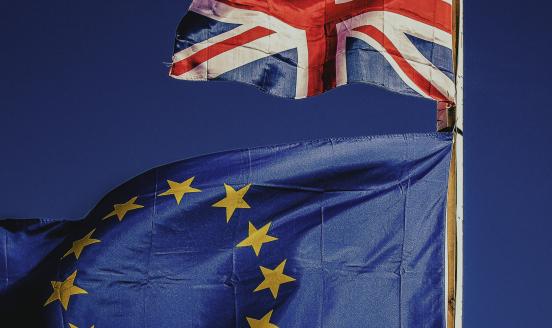Digesting the Salzburg Summit
As the moment of truth for Brexit negotiations is approaching, with the October European Council around the corner, we review opinions on the outcome

Martin Sandbu writes that Salzburg changes nothing. Outside of parts of the British press and political world, few expected any breakthrough in the Brexit negotiation process at the Salzburg summit this week, and nobody should have expected anything before the British conservative party conference. Sandbu thinks that the situation is not as bad for Theresa May as some would have it. He argues that the main elements of Mrs May’s press conference suggest that the government, far from giving up on Chequers, will be prepared to make further concessions on the specifics to gain agreement from the EU27 on the plan’s basic principle.
To get to this point, however, Britain will have to sign up to a permanent customs union with the EU in all butname, and accept the full force of European jurisdiction in everything to do with production and trade in goods. Then and only then will the EU27 leaders really have to decide whether there is a threat to the single market, if a third country subjects itself to its full regulatory and customs authority in order to avoid border controls with it. Sandbu thinks that it would be a good deal for the EU for its regulatory authority to be accepted by such a big third country.
Anand Menon thinks that the EU may come to regret weakening Mrs May at this crucial Brexit juncture. Salzburg did not change substance: in terms of the negotiations, the two sides have to find a way to agree on an Irish backstop that, as it stands, avoids both Norway-plus and the intra-UK customs border implied by Canada-minus. They also need to agree on a (non-binding) political declaration that can command support in both the European Council and the House of Commons.
What may have changed is the solidity of Mrs May’s position at home. Salzburg has already given free rein to those in the UK who have accused the EU of bad faith all along, and it adds grist to the mill of those who have argued that the EU is not about to compromise – and so the UK should either leave with no deal or settle for a “bog standard” free trade agreement. And so, as the Conservative Party conference looms, the prime minister has been weakened and will face increased dissent from among her own ranks that might further constrain her ability to compromise.
Wolfgang Munchau thinks that what makes the Brexit process so dangerous is that both sides keep on misreading each others’ intentions. Mrs May, like her predecessor, was wrong to think that she could exploit differences between EU leaders. They, on the other hand, misread her political constraints. The concerns that Brussels and the EU27 have about Mrs May’s Chequers proposals are justified, but they were wrong to kill them off. In doing so, they inadvertently increased the probability of a no-deal Brexit.
For as long as the expectation of a Brexit reversal or a UK climbdown persists, there can be no deal. It is possible that the EU’s position will shift as we approach a no-deal Brexit. UK voters, having voted for Brexit, may be prepared to pay an economic price to leave. Continental voters and companies are not similarly primed to make a sacrifice and many EU jobs are at stake. Economists persist in pointing outthat no deal would be worse for the UK than for the EU. This is trivially true, but fails to recognise a more important point: the EU has a much lower political pain threshold for a hard Brexit. The best negotiatingtactic for Mrs May is to do nothing until the EU moves, stick to her proposal in substance – perhaps making some technical improvements, maybe giving it another title – and let the deadlines pass all the way into 2019.
Gideon Rachman writes that Salzburg delivered a serious blow to the UK’s complacency, as it is becoming increasingly clear that the Brexit negotiations could fail. The UK has experienced similar moments in the postwar period: the failed Suez invasion of 1956 was an embarrassment that underlined the fact that Britain was no longer an imperial power; calling in the IMF in 1976 was a humiliating illustration of the UK’s economic weakness. A Brexit debacle could lead to another painful moment of realisation, highlighting the practical limitations of British national sovereignty. To Rachman, the current mood of defiance in Britain is remindful of Greece right after a referendum in which the Greek people voted to reject the terms of an EU bailout in 2015.
Of course, it is also possible that we are simply witnessing a bout of posturing, as both the EU and the UK flex their muscles before the final summit at which they actually finalise the deal. Indeed, itmay ultimately, be “alright on the night”. But Rachman thinks it is clear that things went terribly wrong in Salzburg and the differences between the UK and the EU look starker than ever. British complaints about the EU’s position on Brexit are likely to be no more effective than Greek complaints about austerity. Ultimately, this is not a debate about which side is “right”, but about where the power lies.
Arthur Snell writes that Mrs May’s Salzburg failure is a failure of the ecosystem of her government rather than the individuals involved. British government machinery tends to be more comfortable executing a task than questioning fundamental assumptions. At its best, it makes the British civil service highly effective at pragmatic delivery. At its worst, it creates a walled-off machine, operating in isolation. Mrs May’s Brexit negotiations have suffered because many in her own party have questioned her ideological commitment to the cause, and because of the challenging parliamentary arithmetic in light of her failed election campaign in 2017. Her room for manoeuvre is further restricted by some of the UK’s most influential media outlets, who belittle her advisers and push for outlandish and improbable negotiation outcomes.
Given the extreme pressure that the Brexit process is generating, there is an understandable tendency to focus on the narrow task at hand. This leaves British officials feverishly developing a plan that respects Mrs May’s self-defeating red lines, rather than finding one that can actually be accepted by Europe – Chequers conforms to these features. Snell thinks that there are also subtle hierarchies built into the British system that make these sorts of car crashes more likely.
David Allen Green thinks that Mrs May’s negotiating flaws were laid bare at Salzburg. One recurring problem with the UK’s dealings with the EU is its belief that “more politics” is the solution to any problem. There are those who genuinely believe that former prime minister David Cameron failed to do better with the infamous “deal” before the 2016 referendum because he was not ambitious enough. The UK keeps on bringing the weapons of propaganda and posturing to battles, whereas the EU comes armed with process and patience. Yet the UK still keeps wondering why it fails. Mrs May and those surrounding her have excluded those who they needed the most.
With all that said, Green thinks that Salzburg is not that significant for Brexit. The UK is still on course to leave the EU by an automatic operation of law on March 29th 2019. The EU and the UK are still likely to finalise a withdrawal agreement and will find the means to deal with the Irish backstop issue. Most of the Chequers proposals are not about the terms of exit but about the future relationship between the UK and the EU. And so the EU’s emphatic rejection of those proposals does not directly derail thedeparture, but instead makes the destination less clear.



